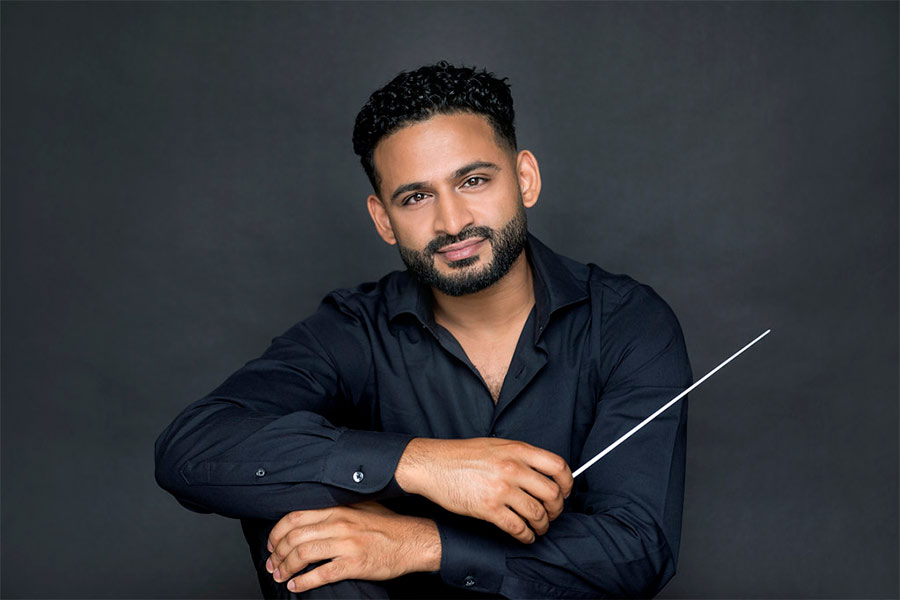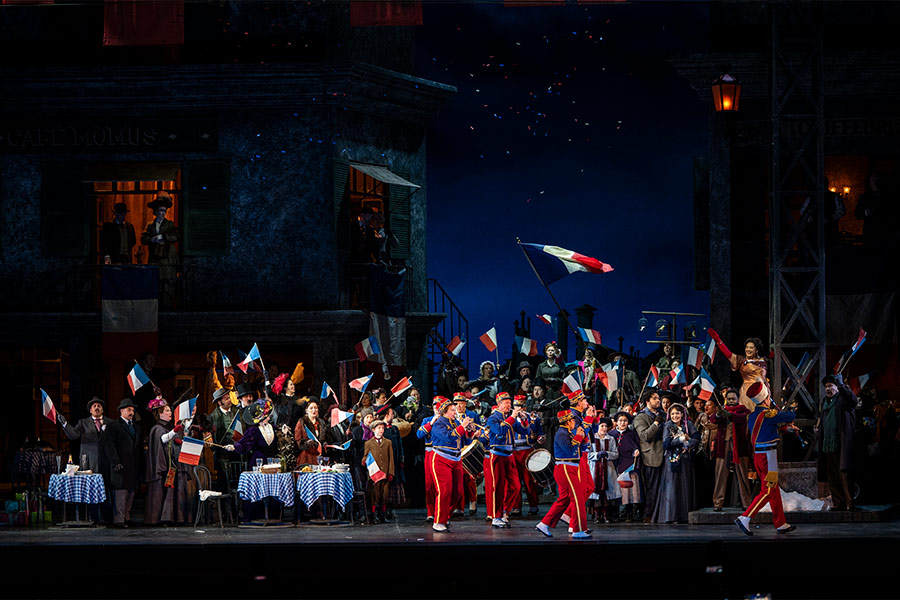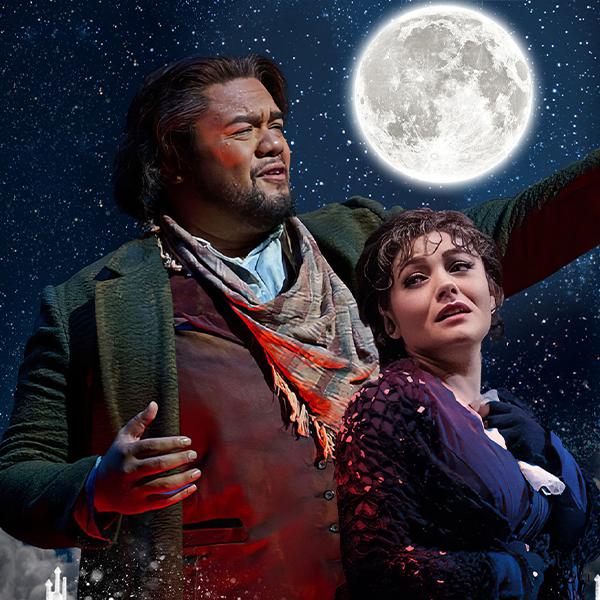April 04, 2025
Conductor Conversation: Jordan de Souza on Puccini's "La Bohème"
Canadian conductor Jordan de Souza will begin his tenure as General Music Director of Theater Dortmund and Chief Conductor of the Dortmund Philharmonic this summer. He debuted on the podium at Lyric in the 2021/22 Season with Florencia en el Amazonas. De Souza has conducted La Bohème more than 50 times — and here he talks about the mastery of Puccini's score, its moving intimacies, and how conductors really learn their trade.

La Bohème is the opera you have conducted the most in your career. Does that familiarity make it a challenge to see the score with fresh eyes?
I wouldn't frame it as a challenge. I would say it's a beautiful opportunity. In these masterpieces — and that's almost an overused term, but titles like Bohème deserve that moniker, in that they are eternally giving — there are always new details to find. Herbert von Karajan said that about Rosenkavalier: After you've conducted it in public 20 times, you're ready to conduct it in public for the first time. Bohème never gets old. On the contrary, it only becomes richer.
Does the richness come from having greater knowledge of the score?
You become more open to its richness as your experience grows. First, You have to master the technical difficulty, and this is one of the most technically difficult pieces in the repertoire. Deceptively difficult. The goal of a piece like La Bohème is to make all of it sound improvised. It's more a conversation piece than it is some lyrical opera. There are moments of real lyricism — but think about the whole beginning of the opera; it's conversation, and it has to sound spontaneous. Musically, what he's done is extremely sophisticated, but it has to come off as natural. Just to master those technical challenges takes years of spending time with the score.
And that's exactly what you've done.
This was one of the first operas I ever studied — the first one where I could play and sing every note, when I was maybe 18 or 19 years old. It's amazing to think that, after I've spent half my life with this piece, now the mysteries of the piece are starting to reveal themselves to me.
What is the result of that evolution?
The piece can grow over 10 performances. We're always getting deeper. And that's actually the joy of it. I would say this music is forever contemporary. It's amazing that it never loses its shine. Even on our first day of rehearsal, when Ailyn Pérez arrived. She's a star, and she knows this opera backwards and forwards.
We started to play the music before her aria in the fourth act, and she was getting emotional. Something about this music can tap into something very deep. I'm not somebody who often gets swept up in emotion in the pit. But this one... the way Puccini captures all that emotion. That's the mysterious power of music.
The work has something personal to it.
This opera does that better than any other. The intensity of the intimacy is such that it really feels — even though there's 80-something musicians in the pit and hundreds of people on stage and behind the stage — somehow it still feels intimate. That's the gift of a great theatrical composer.

It's a big job keeping everyone in sync from the children's chorus to the stage band, but Maestro de Souza is up for the challenge!
What was your professional start with Bohème?
It was in Berlin five or six years ago — a new production at the Komische Oper, where I spent three years as Kapellmeister. I loved my time there. On the podium is really where your education as a conductor begins. The great conductor Carlos Kleiber said, "The only teacher of a conductor is an orchestra." Everything you might do in school, with teachers, with this and that, it's all preparation for that first moment you stand in front of an orchestra. Then your education begins.
There's no fooling an orchestra.
You have to be yourself. If you're pretending to be somebody else, musicians have the best BS detector. You have to just be yourself and find a way to embody your ideas.
You're in charge — but you're not.
We're the silent partner. We're the one person involved in every single note in the evening. You learn how to wield that influence in, hopefully, a positive way that enables the musicians in front of you to give their best.
Does that mean always pressing forward?
Not every moment can be the most important moment. Not everything can be a climax. Wagner teaches you that in one way. Puccini teaches you that same lesson in a very different way.
Can you explain that a bit?
It's not something you consciously do in a performance, but it happens as you start to understand the dramatic structure. Imagine you're reading a novel, and on every page, some unbelievable thing is happening. You wouldn't be able to read anymore. You need to somehow have valleys and hills. You have to have a mixture of those things and know where your destination is. If you milk a moment too early, it takes away from the real climax. And it takes time to sort out where those moments are. That doesn't mean to take something away from somewhere else, but you have to serve each moment in the right way. Those things change from night to night. It's not like every night, it's the same thing. That's the thing I love about opera.
So even with a familiar work, you can't be on autopilot.
It's a very dangerous thing in standard repertoire pieces, with great orchestras who know it very well, with great singers who've done these roles a thousand times. How do you keep it fresh? Here we are together as a collection of individuals, who all have had their own experiences with La Bohème, and here we are to create this one together. Every night, we are different people. The audience is different. They contribute a part of the energy to a performance that is really tangible to us in performance. Everyone saw that during the pandemic. We could put on our tails and the lights and the costumes and the makeup. But it's not a performance without the audience. There's that full circle, a gift exchange in some ways — the gift of time, the gift of coming together for music.

